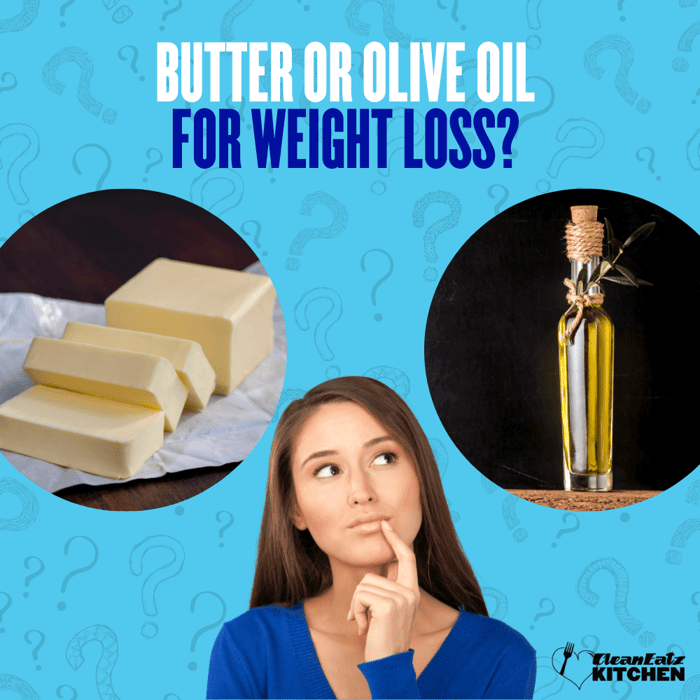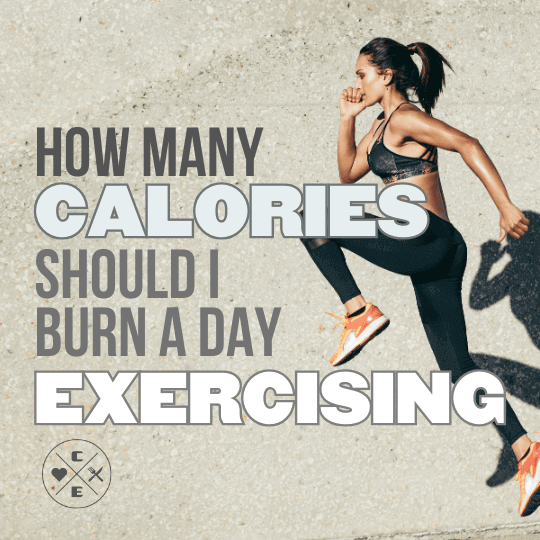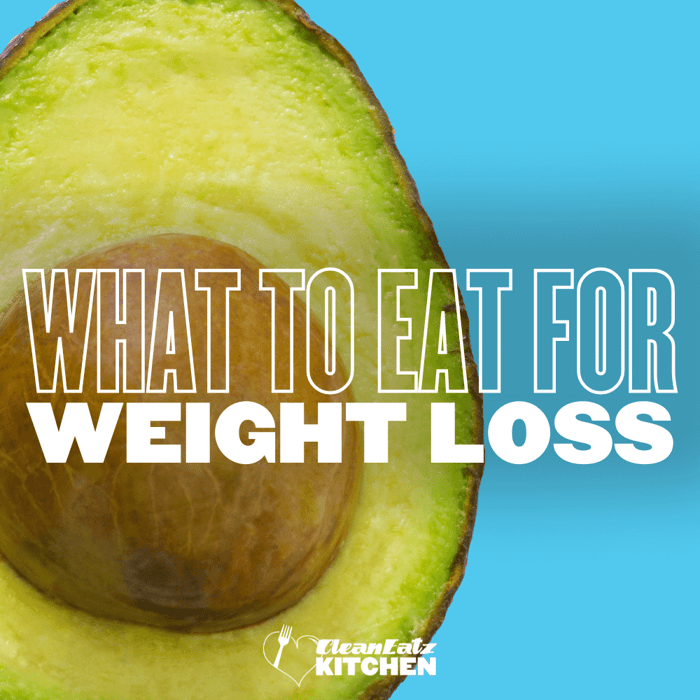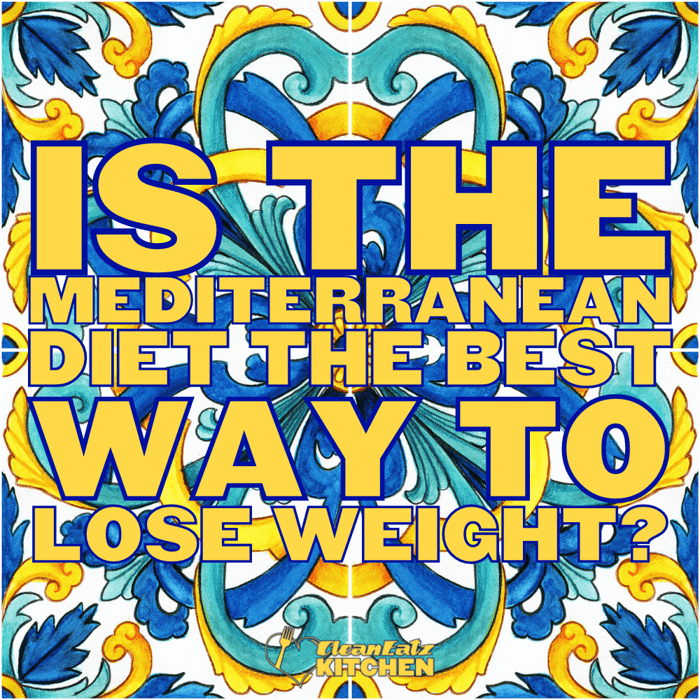Olive Oil vs. Butter: What’s Healthier for Weight Loss?

Dorothy M. Shirnyl, RND
Nutrition
|
Healthy Recipes
|
Weight Loss
12/01/2025 8:09am
17 minute read
Quick Answer: Both olive oil (~120 calories/tablespoon) and butter (~100 calories/tablespoon) are calorie-dense, but olive oil is the healthier choice for weight loss. A major 2025 study of 121,119 participants found that increasing olive oil intake was linked to less weight gain over 20-24 years, while butter and margarine led to weight gain. The key difference? Olive oil's monounsaturated fats support heart health and better metabolic outcomes, while butter's saturated fats raise LDL cholesterol. For weight loss success: measure your portions, default to olive oil for cooking, and save butter as an occasional flavor finisher.
Table of Contents
- The Great Fat Debate: What Actually Matters
- Calories Compared: The Real Numbers
- Why Olive Oil Wins for Weight Loss
- Complete Nutrition Breakdown
- Health Benefits Beyond Weight Loss
- How to Cook with Each Fat
- Smart Substitution Strategies
- Portion Control: The Real Key to Success
- 5 Simple Swaps for Your Weekly Meals
- 7 Mistakes People Make with Cooking Fats
- Frequently Asked Questions
- The Bottom Line
The Great Fat Debate: What Actually Matters
I've heard this question hundreds of times: "Should I use olive oil or butter if I'm trying to lose weight?" And honestly, I get the confusion. For years, we were told all fats were bad. Then suddenly, fats were fine. Now there are "good fats" and "bad fats," and everyone's arguing about which is which.
Here's the thing that cuts through all the noise: both olive oil and butter have nearly identical calories. One tablespoon of olive oil is about 120 calories. One tablespoon of butter is about 100 calories. From a pure calorie standpoint, butter technically wins—but that 20-calorie difference is essentially meaningless in the context of your overall diet.
What actually matters is what happens in your body after you eat these fats, how they affect your hunger levels, how they impact your cholesterol and heart health, and whether they help or hurt your long-term weight management goals. And this is where olive oil and butter are completely different stories.
This guide will show you exactly how these fats compare, what the latest research says about their effects on weight loss, and how to use each one strategically so you can enjoy your food while still reaching your goals. Because let's be real—a life without any fat in your cooking sounds pretty miserable, and it's totally unnecessary.
Calories Compared: The Real Numbers
Before we get into the health differences, let's establish the baseline: how do olive oil and butter actually compare calorie for calorie?
| Measurement | Olive Oil | Butter |
|---|---|---|
| 1 Tablespoon (14-15g) | 119-120 calories | 100-102 calories |
| 1 Teaspoon (~5g) | 40 calories | 34 calories |
| 1/4 Cup | 477 calories | 407 calories |
| Per Gram | ~9 calories | ~7 calories |
At first glance, butter looks like the winner for calorie-conscious cooking. But here's where it gets interesting: butter is only about 80% fat (the rest is water and milk solids), while olive oil is 100% fat. When you account for cooking behavior—butter sizzles and splatters more, olive oil coats food more evenly—the practical calorie difference shrinks even further.
The real question isn't which has fewer calories. It's which one supports your overall health while you're in a calorie deficit. And that's where olive oil pulls ahead by a significant margin.
Why Olive Oil Wins for Weight Loss
When people ask me whether olive oil or butter is better for weight loss, I used to say "they're basically the same—just measure your portions." But recent research has changed my answer. Here's why olive oil is now my default recommendation.
The 121,000-Person Study That Changed Everything
In February 2025, researchers published a landmark study in The American Journal of Clinical Nutrition that followed 121,119 participants over 20-24 years. The findings were striking: every additional 7 grams (about half a tablespoon) of olive oil consumed per day was associated with less weight gain over time. Meanwhile, equal amounts of butter, margarine, and vegetable oils were associated with weight gain.
This wasn't a small effect limited to certain populations—the results held across different ages, BMI levels, and baseline health status. The researchers concluded that "quality over quantity" of fat matters for long-term weight management.
The Metabolic Advantage
Why does olive oil perform better than butter for weight management even when calories are similar? It comes down to how your body processes different types of fat:
Olive oil is primarily monounsaturated fat (MUFA)—about 73% of its fat content. Research suggests monounsaturated fats are more readily used for energy rather than stored as body fat. They also support stable blood sugar levels, which helps control hunger and reduces the likelihood of overeating later.
Butter is primarily saturated fat (SFA)—about 63% of its fat content. Saturated fats are more likely to be stored as body fat and can trigger inflammatory responses that interfere with metabolic function. They also raise LDL ("bad") cholesterol, which isn't directly related to weight but matters for your overall health during weight loss.
The Anti-Inflammatory Factor
Extra virgin olive oil contains powerful antioxidants called polyphenols, including oleocanthal and oleacein. These compounds have anti-inflammatory properties that may support metabolic health and make weight loss easier. Butter contains vitamins A, D, and K2, which are valuable, but it lacks these anti-inflammatory compounds.
For a comprehensive look at which foods support weight loss best, check out our 100 Best Foods for Weight Loss: Complete A-Z Guide.
Complete Nutrition Breakdown
Let's look at what you're actually getting in each tablespoon of these fats:
| Nutrient (per 1 Tbsp) | Extra Virgin Olive Oil | Butter |
|---|---|---|
| Calories | 119 | 102 |
| Total Fat | 13.5g | 11.5g |
| Saturated Fat | 1.9g (14%) | 7.3g (63%) |
| Monounsaturated Fat | 9.9g (73%) | 3.0g (26%) |
| Polyunsaturated Fat | 1.4g (10%) | 0.4g (4%) |
| Cholesterol | 0mg | 31mg |
| Vitamin E | 1.9mg (13% DV) | 0.3mg (2% DV) |
| Vitamin K | 8.1mcg (7% DV) | 0.4mcg (<1% DV) |
| Vitamin A | 0 IU | 355 IU (7% DV) |
| Polyphenols/Antioxidants | Yes (oleocanthal, oleacein) | Minimal |
The standout difference is the fat composition. Olive oil has nearly 4 times less saturated fat than butter. According to the American Heart Association, replacing saturated fats with unsaturated fats can reduce cardiovascular disease risk by about 30%—similar to the effect of statin medications.
Health Benefits Beyond Weight Loss
While weight loss is often the primary goal, the health implications of your fat choices extend far beyond the scale.
Olive Oil's Health Advantages
Heart health: The famous PREDIMED trial found that Mediterranean diets supplemented with extra virgin olive oil reduced major cardiovascular events without promoting weight gain. Olive oil lowers LDL cholesterol while supporting HDL ("good") cholesterol.
Blood sugar control: Research suggests olive oil may improve insulin sensitivity and help manage blood sugar levels—critical factors for sustainable weight loss and reducing diabetes risk.
Inflammation reduction: Chronic inflammation is linked to obesity and metabolic dysfunction. Olive oil's polyphenols have been shown to reduce inflammatory markers in the body.
Brain health: The Mediterranean diet, with olive oil as its primary fat, is associated with better cognitive function and reduced risk of neurodegenerative diseases.
Butter's Health Considerations
Cholesterol impact: A 2018 randomized trial published in BMJ Open found that butter significantly increased LDL cholesterol compared to olive oil. Over four weeks, participants consuming 50g of butter daily saw their LDL rise, while those consuming olive oil did not.
Vitamin content: Butter does provide fat-soluble vitamins A, D, and K2, which support bone health, immune function, and blood clotting. However, you'd need to consume significant amounts to get meaningful doses, which would add substantial calories.
Grass-fed distinction: Grass-fed butter contains more omega-3 fatty acids and conjugated linoleic acid (CLA) than conventional butter, which may offer some metabolic benefits. However, it's still predominantly saturated fat.
How to Cook with Each Fat
Knowing when and how to use each fat can help you make better choices in the kitchen.
Smoke Points: What You Need to Know
| Fat Type | Smoke Point | Best Uses |
|---|---|---|
| Extra Virgin Olive Oil | 325-375°F | Salad dressings, low-medium heat sautéing, finishing |
| Light/Refined Olive Oil | 390-470°F | High-heat cooking, roasting, light frying |
| Butter | 300-350°F | Low-heat sautéing, baking, finishing |
| Ghee (Clarified Butter) | 450-485°F | High-heat cooking, searing |
Golden Rules for Cooking with Fats
Rule #1: Measure everything. This is non-negotiable. A "drizzle" of olive oil could be 1 tablespoon (120 calories) or 3 tablespoons (360 calories). Use a food scale or measuring spoons until you can eyeball portions accurately.
Rule #2: Default to olive oil. For most everyday cooking—sautéing vegetables, making dressings, roasting sheet-pan meals—olive oil should be your go-to. Reserve butter for specific applications where its flavor is essential.
Rule #3: Use butter as a flavor finisher. Instead of cooking in large amounts of butter, add a small pat (1/2 to 1 teaspoon) at the end of cooking for flavor. You get the taste with a fraction of the calories.
Rule #4: Match the fat to the cooking method. Use extra virgin olive oil for lower-heat cooking and finishing; refined olive oil for higher-heat applications. Butter works best for baking and low-heat applications where you want its specific flavor.
Smart Substitution Strategies
Swapping butter for olive oil is one of the easiest healthy changes you can make. Here's how to do it right:
Baking Conversions
| Butter Amount | Olive Oil Equivalent | Notes |
|---|---|---|
| 1 tablespoon | 2¼ teaspoons | Good for most recipes |
| ¼ cup (4 tbsp) | 3 tablespoons | Works well in muffins, quick breads |
| ½ cup (8 tbsp) | ¼ cup + 2 tbsp | Great for cakes, brownies |
| 1 cup (16 tbsp) | ¾ cup | Use light olive oil for milder flavor |
Pro tip: Use light or refined olive oil in sweet baked goods to avoid an overly "olive-y" taste. Save extra virgin for savory applications where its flavor enhances the dish.
Everyday Cooking Swaps
These simple swaps can save you significant saturated fat without sacrificing flavor:
Toast: Instead of 1 tablespoon butter (102 calories, 7g sat fat), use 1 teaspoon olive oil with a pinch of salt and diced tomato (40 calories, 0.5g sat fat). Savings: 62 calories, 6.5g saturated fat.
Roasted vegetables: Instead of tossing with butter, coat with 2 teaspoons olive oil per sheet pan. You'll get better browning and fewer calories.
Pan-seared protein: Sear chicken, fish, or steak in olive oil. If you want that butter finish, add 1/2 teaspoon at the very end for flavor.
Mashed potatoes: Use olive oil instead of butter, add roasted garlic for extra flavor. Result: creamy potatoes with healthier fats.
For more smart food swaps that support weight loss, see our guide on Healthy Food Alternatives to Lose Weight.
Portion Control: The Real Key to Success
Here's the truth that gets lost in the olive oil vs. butter debate: neither fat will help you lose weight if you're not controlling portions. Both are incredibly calorie-dense at about 9 calories per gram, which means small mistakes add up fast.
How Much Fat Should You Actually Use?
The Dietary Guidelines for Americans 2020-2025 recommend that total fat intake should be 20-35% of your daily calories, with saturated fat kept under 10%. For a 2,000-calorie diet, that means:
| Your Goal | Daily Added Oil Limit | Saturated Fat Limit |
|---|---|---|
| Aggressive weight loss (1,500 cal) | ~1.5 tbsp (18g) | ~13g |
| Moderate weight loss (1,800 cal) | ~2 tbsp (24g) | ~16g |
| Maintenance (2,000 cal) | ~2 tbsp (27g) | ~20g |
| Active/muscle building (2,500 cal) | ~3 tbsp (34g) | ~25g |
To figure out your specific calorie needs, use our Calorie Calculator.
Practical Measuring Tips
Use actual measurements for 7-10 days. Most people drastically underestimate how much oil they use. Track carefully for a week or two until you can eyeball a tablespoon accurately.
Invest in measuring tools. Oil misters, measuring spoons, and food scales are your best friends. An oil mister lets you coat a pan with a fraction of the oil you'd use with a pour.
Pre-portion your cooking fats. If you know you're making dinner, measure out 1 tablespoon of olive oil before you start. When it's gone, it's gone.
Account for all sources. Remember that salad dressings, marinades, and restaurant meals often contain significant amounts of oil. A typical restaurant salad can have 3-4 tablespoons of dressing (400+ calories just from fat).
5 Simple Swaps for Your Weekly Meals
Here's how to put this into practice with real meals you'd actually eat:
1. Breakfast: Eggs Your Way (~300 calories)
Instead of: 2 eggs scrambled in 1 tablespoon butter (300 cal, 9g sat fat)
Try: 2 eggs scrambled in 1 teaspoon olive oil with spinach and tomato (240 cal, 2g sat fat)
Savings: 60 calories, 7g saturated fat
2. Lunch: Mediterranean Grain Bowl (~450 calories)
1 cup cooked quinoa + 4 oz grilled chicken + cucumber, tomatoes, olives + 1 tablespoon olive oil and lemon dressing + crumbled feta
This meal showcases olive oil as the star fat, paired with protein and fiber for lasting fullness.
3. Dinner: Sheet Pan Salmon (~400 calories)
5 oz salmon fillet + roasted broccoli and sweet potato, all coated with 2 teaspoons olive oil + herbs
The omega-3s from salmon plus the monounsaturated fats from olive oil make this a heart-health powerhouse.
4. Side Dish: Garlic Roasted Vegetables (~100 calories)
Instead of: Vegetables tossed in 2 tablespoons butter (204 cal, 14g sat fat)
Try: Vegetables misted with 2 teaspoons olive oil + roasted garlic (80 cal, 1g sat fat)
Savings: 124 calories, 13g saturated fat
5. Snack: Bruschetta (~150 calories)
Slice of crusty bread + 1 teaspoon olive oil + diced tomatoes + fresh basil + balsamic drizzle
A satisfying snack that uses olive oil as a flavor base rather than butter.
For more meal ideas and done-for-you options, explore our Weight Loss Meal Plan or Build Your Own Meal Plan.
7 Mistakes People Make with Cooking Fats
I've seen these errors derail more weight loss efforts than I can count. Here's what to avoid:
1. "Eyeballing" Portions
The problem: What you think is 1 tablespoon is often 2-3 tablespoons. A pour of olive oil that looks reasonable could easily be 300+ calories.
The fix: Measure for at least a week. Use measuring spoons or a food scale until you can accurately estimate.
2. Assuming "Healthy" Means "Unlimited"
The problem: Olive oil is healthy, so people use it liberally without counting. But 3 tablespoons of olive oil is 360 calories—more than many entire meals.
The fix: Healthy fats still count toward your daily calories. Track them like any other food.
3. Cooking at Too High Heat with EVOO
The problem: Extra virgin olive oil has a lower smoke point. When it smokes, you lose beneficial compounds and create potentially harmful ones.
The fix: Use EVOO for low-medium heat and finishing. Switch to refined olive oil for high-heat cooking.
4. Ignoring Restaurant Portions
The problem: Restaurant dishes are often cooked in far more butter and oil than home cooking. That "healthy" salmon could have 4-5 tablespoons of butter.
The fix: Ask for dishes to be prepared with less fat, or request dressings and sauces on the side.
5. Replacing All Butter with Margarine
The problem: While trans-fat-containing margarines are largely off the market, some spreads still contain less-than-ideal ingredients.
The fix: If you want a spreadable option, look for olive oil-based spreads or use actual olive oil.
6. Forgetting Hidden Fats
The problem: Nuts, avocados, cheese, and fatty fish all contain significant fat. If you're also cooking with added oils, it adds up.
The fix: Track all fat sources, not just cooking oils. Balance your fat intake across the day.
7. Going Completely Fat-Free
The problem: Cutting all fat leads to unsatisfying meals, poor nutrient absorption (vitamins A, D, E, K need fat), and often overeating later.
The fix: Include moderate amounts of healthy fats at each meal. They support satiety and overall health.
For more meal prep strategies that help you avoid these mistakes, check out our Complete Meal Prep Guide.
Frequently Asked Questions
Which has fewer calories: olive oil or butter?
Butter has slightly fewer calories at about 100 per tablespoon compared to olive oil's 120 calories. However, the 20-calorie difference is negligible, and olive oil's healthier fat composition makes it the better choice for most cooking applications.
Can I lose weight using olive oil?
Yes. A 2025 study of 121,119 participants found that increasing olive oil intake was associated with less weight gain over 20-24 years, while butter and margarine consumption led to weight gain. Weight loss still requires a calorie deficit, but olive oil supports better outcomes.
Is butter bad for weight loss?
Butter isn't inherently bad for weight loss if used in moderation and within your calorie budget. However, its high saturated fat content can raise LDL cholesterol, and studies show it's more likely to contribute to weight gain compared to olive oil.
How much olive oil should I use per day for weight loss?
The Dietary Guidelines recommend about 27 grams (just under 2 tablespoons) of total added oils per day for a 2,000-calorie diet. Measure your portions carefully since all fats are calorie-dense at 9 calories per gram.
Can I substitute olive oil for butter in baking?
Yes, use about 3/4 cup of olive oil for every 1 cup of butter in most recipes. The swap works well for muffins, cakes, and quick breads. Use light or refined olive oil for milder flavor in sweet baked goods.
What is the smoke point of olive oil vs butter?
Extra virgin olive oil has a smoke point of 325-375°F, while butter burns at around 300-350°F. Refined olive oil can handle 390-470°F. For high-heat cooking like searing, choose refined olive oil or another high smoke point oil.
Is ghee healthier than butter for weight loss?
Ghee (clarified butter) has a higher smoke point and removes milk solids, but it contains similar saturated fat levels as butter. For weight loss and heart health, olive oil remains the better choice over both butter and ghee.
Why does the Mediterranean diet use so much olive oil?
The Mediterranean diet emphasizes olive oil because research shows it supports heart health, reduces inflammation, and doesn't promote weight gain when calories are controlled. The PREDIMED trial found that Mediterranean diets rich in olive oil lowered cardiovascular disease risk without causing weight gain.
The Bottom Line
So, olive oil or butter for weight loss? Here's my honest take after reviewing the research and working with countless people trying to lose weight:
Make olive oil your default cooking fat. The research is clear—it's associated with better weight management, improved heart health, and reduced inflammation. Use extra virgin olive oil for dressings and low-heat cooking, and refined olive oil when you need higher heat.
Use butter sparingly and strategically. Butter isn't poison, and sometimes its flavor is exactly what a dish needs. But think of it as a finishing touch rather than a cooking foundation—a teaspoon to finish a sauce or melt over steamed vegetables, not the tablespoons you'd cook with.
Measure everything—at least at first. This is the real secret. Neither fat will help you lose weight if you're not controlling portions. Get accurate with your measurements, and you can enjoy both fats as part of a successful weight loss plan.
And if you want to take the guesswork out of portion control entirely? Our Weight Loss Meal Plan delivers perfectly portioned, macro-balanced meals straight to your door. Every meal is designed by our registered dietitian to support your goals—no measuring, no math, just heat and eat.
Whether you're cooking at home or letting us handle the prep, the key is making sustainable choices you can stick with. And swapping butter for olive oil more often? That's one of the easiest, most impactful changes you can make.
Sources:
Guasch-Ferré, M., et al. (2025). Changes in olive oil consumption and long-term body weight changes in three U.S. prospective cohort studies. The American Journal of Clinical Nutrition.
Khaw, K.T., et al. (2018). Randomised trial of coconut oil, olive oil or butter on blood lipids and other cardiovascular risk factors in healthy men and women. BMJ Open.
Sacks, F.M., et al. (2017). Dietary Fats and Cardiovascular Disease: A Presidential Advisory From the American Heart Association. Circulation.
American Heart Association. Saturated Fats. heart.org.
Disclaimer: This article is for informational purposes only and does not constitute medical advice. Consult with a healthcare provider before making significant changes to your diet, especially if you have existing health conditions.



